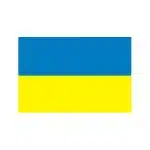Certified translation by sworn translators in Berlin – Worldwide
Welcome to our premier translation service: Certified translation by sworn translators in Berlin – Worldwide. Our team of dedicated professionals is committed to providing you with accurate and certified translations that meet the highest standards. Whether you require legal, business, or personal documents translated, we have the expertise and global reach to assist you. Discover how our certified translations can bridge language barriers and open doors to a world of opportunities. Explore our services today
Berlin Translate – Your Trusted Certified Translation Service in Berlin and Across Germany
If you’re an expat living in Berlin, you may need to have your official documents translated into German in order to assert your rights in the country. This can be a time-consuming and confusing process, but fortunately, Berlin Translate is here to help. Our certified translation service offers accurate and reliable translations of a variety of official documents, all for an affordable price of just 45 EUR per page.
At Berlin Translate, we understand that having your official documents correctly translated is crucial for your legal and administrative processes. That’s why our team of experienced and qualified translators are dedicated to providing high-quality translations that are recognized by German authorities. We specialize in translating a wide range of official documents, including birth certificates, marriage certificates, divorce papers, diplomas, and more.
Our certified translations are accepted by German authorities and institutions, so you can be sure that your documents will be legally recognized. Plus, our fast turnaround time ensures that you receive your translations as quickly as possible, without compromising on quality. We offer competitive prices without sacrificing the quality of our work, so you can trust us to provide the best translation services at an affordable price.
To get started, simply contact us with your official document and we’ll provide you with a free quote. Our transparent pricing structure ensures that you’ll know exactly what you’re paying for, so there are no hidden fees or surprises. With our certified translation services, you can have peace of mind knowing that your documents are in good hands and that you’ll receive high-quality translations at an affordable price.
Here are the types of official documents that we frequently translate and certify:
- Birth Certificates: A birth certificate is an important proof of identity and is often required to apply for a residence permit or to handle other official matters.
- Marriage Certificates: If you plan to get married in Germany, you may need to submit a marriage certificate. We provide translations for marriage certificates and other documents related to marriage and partnership.
- Divorce Certificates: If you have been divorced and need your divorce certificate in Germany, we can provide you with a certified translation.
- Diplomas and Certificates: If you are looking for work in Germany, you may need to have your educational qualifications translated to qualify for certain professions.
- Residence Permits: If you are a foreigner living in Germany, you may need to have your residence permit translated and certified for various official purposes.
whether you need to apply for a residence permit or pursue other administrative procedures in Germany, Berlin Translate’s certified translation services can help you assert your rights. Contact us today to get started and see how we can assist you with all your translation needs.
What is a certified translation?
Some translations have higher stakes than others; notably documents used as part of a legal process before a court, a tribunal or a notary. Most of the time, these documents must be provided with a certified translation in order to be accepted. Here, translations can be requested not only from individuals but also from professionals.
For example, a young high school graduate wishing to enrol in a university abroad will need a certified translation of his academic qualifications. In the case of a company’s international files, it is also often requested to provide a certified translation of one or several documents, such as the contract for a creation of a business. In order to open a branch abroad or carry out an operation in another country, it is also not uncommon for the authorities of the destination country in question to demand a ‘certified translation’ of your up-to-date Kbis extract (business registration).
A certified translation is a translation that has been officially verified as accurate and complete by a professional translator. Here are some advantages of using a certified translation:
- Legal compliance: In many cases, legal documents such as marriage certificates, divorce decrees, or immigration papers need to be translated for use in a legal proceeding. Using a certified translation can help ensure that the translation meets the legal requirements and is accepted by the relevant authorities.
- Accuracy and completeness: Certified translations are completed by professional translators who are trained to translate accurately and completely. They are familiar with legal terms and language and can ensure that the translation is faithful to the original document.
- Trustworthiness: A certified translation carries the seal and signature of the translator, which confirms that the translation is accurate and complete to the best of their knowledge. This can increase the trustworthiness of the translation and make it more likely to be accepted by the relevant authorities.
- Consistency: A certified translation is completed by a single translator or team of translators, which helps ensure consistency in the translation. This is particularly important for legal or technical documents, where a consistent translation is necessary for accuracy and clarity.
- Professionalism: Using a certified translation can demonstrate a high level of professionalism and attention to detail. This can be important in legal or business contexts, where accuracy and precision are crucial.
Overall, a certified translation can provide assurance that a translation is accurate, complete, and meets the legal requirements of the relevant authorities. It can be a valuable tool for individuals or businesses who need to translate legal or technical documents for use in an official setting.
Table of official documents requiring a certified translation / Apostille / Legalization
| Originating document | Destination document | Certified translation | Apostille | Legalization |
|---|---|---|---|---|
| Germany | EU member state | Yes | No | No |
| Germany | Non-EU member state | Yes | Yes | Yes |
| Non-EU member state | EU member state | Yes | Yes | No |
| Non-EU member state | Non-EU member state | Yes | Yes | Yes |
Explanations
Certified translation
A certified translation is a translation that is made by a sworn translator. The translation is certified by the translator’s stamp and a notation from the district or higher regional court.
Apostille
An Apostille is an international certification that attests to the authenticity of the signature, seal, or authentication of a public document. The Apostille is issued by the competent authority of the country in which the document was issued.
Legalization
A legalization is a certification that attests to the authenticity of the signature, seal, or authentication of a public document by the authorities of the country in which the document was issued. The legalization is issued by the competent authority of the country in which the document is to be used.
Examples
- A German birth certificate that is to be used in France must be certified and affixed with an Apostille.
- A Polish marriage certificate that is to be used in Germany must be certified and legalized.
- A Russian passport that is to be used in the United States must be certified and legalized.
Note
The steps required to obtain a certified translation and an Apostille or legalization may vary depending on the country and document. It is therefore advisable to contact the competent authorities.
Document type
The following types of official documents are listed in the table that require a certified translation: Birth certificates, Marriage certificates, Death certificates, Nationality certificates, Marriage eligibility certificates, Adoption certificates, Divorce decrees, Court judgments, Certificates, Testimonials, Identification cards, Driver’s licenses, Visas, Employment contracts, Tax returns, Financial documents, Contracts, Patents, Trademarks, Brands, Certificates, Documents.
It is important to note that this list is not exhaustive and that there may be other types of official documents that require a certified translation.
The certification process
The certification process involves a translator swearing under oath that the translation is accurate and complete, and that he or she is competent to translate the document. The translator signs and stamps the translation, adding a statement attesting to its accuracy and completeness. This certification is often required to accompany the original document and may be used in legal proceedings.
It’s important to note that not all translators are authorized to provide certified translations. In many countries, only state-certified or sworn translators are allowed to provide this service. Therefore, it’s recommended to choose a reputable and experienced translation service provider with certified translators to ensure the authenticity and accuracy of the certified translations.
In summary, certified translations are official translations that are necessary for legal documents and require a qualified and authorized translator to provide the certification. Choosing a reputable and experienced translation service provider with certified translators is essential to ensure the accuracy and authenticity of the translations.
Call on a sworn translator
A sworn translation is a translation produced by a translator who has sworn an oath before a Tribunal. The sworn translator puts their stamp on the document. A certified translation is therefore recognised as an official document by tribunals and the administration. A sworn translation is required for a number of administrative documents such as civil registration papers (birth certificate, marriage certificate…), extracts from the Chamber of Commerce, legal rulings and degrees.
The translation process
For better readability, certified translations must reproduce the layout of the original document. In the case of birth certificates, passports or degree certificates for example, the layout can be very different (and more complex) than regular documents.
Have the original or a certified copy available:
For a certified translation of a Kbis extract (or other documents of this type), the destination country generally requires that the translation is produced from the original and not from a copy. In concrete terms, this means that the sworn translator must put their stamp and signature on the original paper provided and not on a paper copy of the original.
Our advice: It is very important to know from the start if a certified translation is necessary or not because the price and completion time differ greatly from non-certified translations (more commonly known as ‘free translations’).
Ordering a Certified Translation in Berlin and Across Germany – Step by Step Guide
If you need a certified translation for an official document such as a birth certificate, marriage certificate, diploma or any other document, Berlin Translate can provide you with a high-quality and reliable translation. Here’s a step-by-step guide on how to order a certified translation from us:
Step 1: Get a Quote Contact us through our website, email or phone to receive a quote for your translation project. You will need to provide us with the details of the documents you need to translate, such as the language, the length, and the deadline. We will then provide you with a transparent and competitive quote.
Step 2: Submit Your Documents Once you have accepted the quote, you can submit your documents to us by email or in person at our office in Berlin. If you cannot come to our office, we also offer a secure mail service.
Step 3: Translation and Certification Our experienced and qualified translators will translate your documents accurately and flawlessly. We will also have the translation certified by a sworn translator, who will attach a signed and stamped declaration of accuracy to the translation.
Step 4: Delivery Once the translation is complete, we will send it to you by email, mail or you can collect it from our office in Berlin.
At Berlin Translate, we understand the importance of accurate and reliable translations. That’s why we work closely with our customers to ensure that their translation needs are met. We also guarantee the confidentiality of your documents and respect your privacy.
If you have any further questions or need more information about our certified translation services, please do not hesitate to contact us. Our team is always happy to help.
How much does a certified translation cost?
The cost of a certified translation can vary depending on several factors such as the language pair, the type of document, the length of the document, the level of complexity, and the urgency of the project.
Generally, the cost of a certified translation is calculated based on the number of words in the document or the number of pages. The price per word or page may vary depending on the language pair and the translation service provider.
It’s important to note that some translation service providers may charge additional fees for rush orders, formatting, or other additional services. It’s recommended to obtain a quote from a reputable translation service provider like Berlin Translate to get an accurate estimate of the cost of a certified translation for your specific project.
The cost of a certified translation in Berlin and across Germany with Berlin Translate
The cost of a certified translation in Berlin and across Germany may vary depending on the language, the length, and the complexity of the document. At Berlin Translate, our prices are competitive and transparent, and we offer a clear and detailed quote before starting the translation process.
Our standard rate for certified translations is 45 EUR per page, excluding VAT. This rate includes the cost of certification and delivery, so you don’t have to worry about any additional fees. We also offer discounts for large projects and regular customers.
If you have a document that needs to be translated and certified, contact us today for a free quote. Our team of experienced translators and project managers will be happy to assist you and answer any questions you may have.








